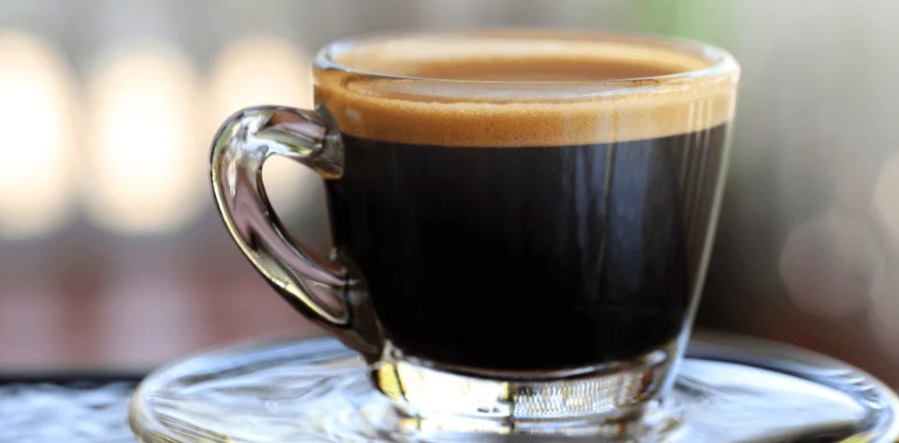
When it comes to navigating the world of foods and drinks on a low FODMAP diet, black coffee emerges as a surprising ally. Yes, black coffee, whether it’s your morning kickstarter caffeine-loaded cup or its milder decaf sibling, fits well within the low FODMAP spectrum. However, moderation is key. The consensus is clear: enjoying black coffee in moderate amounts can be part of a low FODMAP diet without stirring the pot of digestive discomfort.
Key Takeaways
In diving deeper into the world of coffee and its place in a low FODMAP diet, we uncover a few essential brew-notes:
- Moderation Matters: Black coffee is low FODMAP in certain amounts. Like many pleasures in life, the secret lies in not overindulging. Finding that sweet spot of just the right amount can let you enjoy your brew without worry.
- Listening to Your Body: Personal tolerance levels to coffee, like any other food or drink, can vary significantly from person to person. It’s crucial to pay attention to how your body reacts to coffee and adjust your intake accordingly.
- Watch What You Add: A simple black coffee can quickly cross into high FODMAP territory with the addition of certain ingredients. Milk, sweeteners, and even certain syrups can transform your low FODMAP drink into something far less gut-friendly.
- Tailored Recommendations: For individuals navigating IBS, coffee doesn’t have to be off the table. Understanding how coffee affects you personally and adhering to recommended amounts can make it a viable option within a low FODMAP diet.
Coffee and the Gut
Diving into the realm of coffee and its effects on gut health, it turns out that this beloved beverage might be more friend than foe. Beyond its wake-up call capabilities, coffee possesses prebiotic properties, which play a crucial role in nurturing our gut flora. Prebiotics, essentially, are food for our beneficial gut bacteria. They help in fostering a diverse and thriving microbial community in our digestive systems.
The phenolic compounds found in coffee act as these beneficial prebiotics, providing a feast for our gut bacteria and, in turn, contributing to a healthier gut ecosystem. This aspect of coffee, surprisingly, adds a positive spin to its consumption, highlighting its potential benefits to gut bacteria diversity and overall gut health.
Coffee’s Impact on IBS Symptoms
However, when it comes to Irritable Bowel Syndrome (IBS), the coffee conversation becomes a bit more complex. The effects of coffee on individuals with IBS can range dramatically, largely depending on the type of IBS a person has and their personal tolerance levels. For some, coffee can exacerbate symptoms like bloating, gas, and diarrhea due to its gut-stimulating properties and acidity. Especially for those with IBS-D (diarrhea-predominant IBS), the caffeine in coffee can speed up gut motility, leading to discomfort. Yet, not everyone with IBS needs to steer clear of coffee.
Some people might find that they can tolerate certain types or amounts of coffee without any adverse effects. It becomes a highly individual matter, where listening to one’s body and possibly adjusting the type (such as switching to decaf) or amount of coffee consumed could allow for enjoyment without discomfort. The key is to start with small amounts, observe how your body reacts, and adjust accordingly, keeping an eye on personal tolerance and IBS type.
Safe Coffee Consumption on a Low FODMAP Diet
When it comes to selecting the right type of coffee on a low FODMAP diet, your choices matter. Black coffee, whether it’s brewed, espresso, or instant, is generally safe in moderation. The key is sticking to recommended amounts: a 6-ounce cup of brewed coffee or a single or double shot of espresso ensures that you stay within the low FODMAP guidelines. Venturing into larger quantities could navigate you into choppy waters, potentially stirring up IBS symptoms.
The Role of Caffeine and Decaf
Caffeine’s impact on IBS can vary greatly among individuals. For some, it may trigger symptoms, while others might not notice any difference. If you find yourself sensitive to caffeine but still long for the comfort of a warm cup, decaf could be your safe harbor. Decaffeinated coffee maintains the low FODMAP status and might be gentler on your gut, allowing you to enjoy the ritual of a coffee without the worry.
Additives and Alternatives
Here’s where the plot thickens: it’s not just the coffee itself, but what you add to it that counts. Traditional dairy can be a high FODMAP no-go, but fear not—lactose-free milk and plant-based alternatives like almond milk or coconut milk can let you have your latte and drink it too. Just be sure to choose versions without added high FODMAP ingredients.
Sweetening your coffee? Opt for simple sugar or a low FODMAP sweetener. High FODMAP sweeteners and artificial sweeteners might not sit well with your gut. And if you’re looking to spice things up, cinnamon or a dash of cardamom can add flavor without adding FODMAPs.
Integrating Coffee into Your Low FODMAP Diet
Integrating coffee into a low FODMAP diet can be smooth sailing with a few practical tips. First, choosing the right milk alternative is crucial. Lactose-free milk, almond milk, and coconut milk are great choices, but always check labels for any hidden high FODMAP ingredients. Monitoring how your body reacts to coffee is also key.
Start with a small amount and adjust based on your tolerance, keeping an eye out for any IBS symptoms. Remember, personal tolerance varies greatly, so what works for one person may not work for another.
FAQs
- Can I drink coffee if I have IBS?
Yes, many people with IBS can still enjoy coffee in moderation. It’s about finding the right balance and understanding how your body responds to coffee. - How does decaf coffee compare to regular coffee in terms of FODMAP content?
Decaf coffee is similar to regular coffee in terms of FODMAP content. The difference lies in the caffeine content, which can affect IBS symptoms for some people. - What are some safe coffee additives on a low FODMAP diet?
Safe additives include lactose-free milk, almond milk, simple sugar, and certain spices like cinnamon. Avoid high FODMAP sweeteners and dairy milk to keep your coffee low FODMAP friendly.
Final Thoughts
Navigating coffee consumption on a low FODMAP diet doesn’t have to be complicated. By understanding your personal tolerance, choosing the right milk alternatives, and being mindful of additives, you can enjoy coffee without worrying about IBS flare-ups. Remember, the key to a successful low FODMAP diet is personalization and moderation, allowing you to enjoy the little pleasures in life, like a good cup of coffee.









